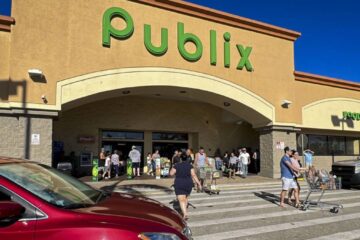Maybe you forget Grexit, the nickname given to Greece’s multi-year financial crisis in the mid-2010s. It had many people, investors and governments worried the small nation would be forced to withdraw from the European Union.
It was a big deal at the time. Greece was a financial and economic mess because government spending was far greater tax revenue. It caused financial outlets to devote many, many column inches or many, many broadcast minutes debating what might happen if Greece was tossed from the European Union.
Solutions were found Greece afloat, and the country so far hasn’t tossed from the EU, but its finances remain shaky.
The StreetPro columnist Doug Kass hasn’t forgotten Grexit. And he’s worried the financial condition of the United States is deteriorating into something resembling Greece.
Related: Billionaire fund manager, skeptical of AI, backs shocking stock
What prompted Kass’ thinking came a day after Congress passed President Trump’s “beautiful tax bill.” The bill would extend Trump’s 2017 tax cuts and add tax cuts but doing little to replace lost tax revenue.
The event that Kass saw was that the prices of credit default swaps on U.S. government debt (which pay off in event of a default) were nearing the prices now being charged on credit default swaps on Greece’s debt.
Credit default swaps are basically insurance, and you pay what is basically a premium for the protection. If the debtor defaults on the debt, he pays off the investor.
Dancing like ‘Zorba the Greek’
Kass, president of Seabreeze Partners Management, thinks investors appear blissfully unconcerned with implications of the tax bill. “It appears investors are dancing like ‘Zorba the Greek,’ while the U.S. spends gluttonously,” he wrote.
“Zorba the Greek” was Nikos Kazantzakis’ 1940s novel and, later, a 1964 film about a Greek working man whose zest for life overshadows all else, often with tragic implications.
What shocks Kass: “The bill’s debt impact — with a 220% debt-to-GDP ratio by 2055 — reflects the Republican party’s ideological shift to the Democratic party’s liberal big spending of the past.”
Actors Anthony Quinn, right, and Alan Bates, left, in the 1964 film “Zorba The Greek.” by Michael Cacoyannis.
Keystone-France/Getty Images
Bond rating cut is a signal
The underlying assumption being that tax cuts will fuel economic growth and take care of the deficits.
Maybe not. The major bond-rating agencies no longer see U.S. debt as AAA rated. Moody’s Investors Service downgraded U.S. debt on May 16 to Aaa to Aa1.
Related: Stock Market Today: Tariffs are back! Stocks (surprise!) are lower.
Investors did pay attention to the downgrade. It was part of the reason the S&P 500 fell 2.6% this past week.
(President Trump also contributed to the decline with new tariff threats and criticism of Apple’s (AAPL) reluctance to move production of iPhones back to the United States. Apple fell 7.6% on the week.)
More Economic Analysis:
Fed inflation gauge sets up stagflation risks as tariff policies biteU.S. recession risk leaps as GDP shrinksLike it or not, the bond market rules all
And the credit default swaps market sees U.S. debt facing more downgrades, maybe down to BBB+, not much above BB-. That’s Standard & Poors’ minimum rating for an investment-grade bond.
To real solution to fixing the problem, Kass thinks, “is cutting expenses, and biting the bullet that way, but neither party seems willing to do that.”
Related: Car dealers have a bigger problem than tariffs
Today’s expanding debt crisis may be similar to 2007, Kass says, when the subprime mortgage crisis was starting to emerge. At the time, Chuck Prince, then CEO of banking giant Citigroup (C) , famously said.
“As long as the music is playing, you’ve got to get up and dance.”
To Doug Kass, it sounds like Zorba the Greek.
Related: Veteran fund manager who forecast S&P 500 crash unveils surprising update


